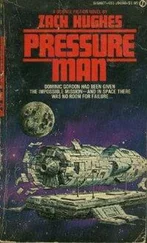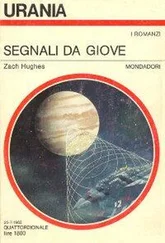Zach Hughes - The Stork Factor
Здесь есть возможность читать онлайн «Zach Hughes - The Stork Factor» весь текст электронной книги совершенно бесплатно (целиком полную версию без сокращений). В некоторых случаях можно слушать аудио, скачать через торрент в формате fb2 и присутствует краткое содержание. Жанр: Фантастика и фэнтези, на английском языке. Описание произведения, (предисловие) а так же отзывы посетителей доступны на портале библиотеки ЛибКат.
- Название:The Stork Factor
- Автор:
- Жанр:
- Год:неизвестен
- ISBN:нет данных
- Рейтинг книги:3 / 5. Голосов: 1
-
Избранное:Добавить в избранное
- Отзывы:
-
Ваша оценка:
- 60
- 1
- 2
- 3
- 4
- 5
The Stork Factor: краткое содержание, описание и аннотация
Предлагаем к чтению аннотацию, описание, краткое содержание или предисловие (зависит от того, что написал сам автор книги «The Stork Factor»). Если вы не нашли необходимую информацию о книге — напишите в комментариях, мы постараемся отыскать её.
The Stork Factor — читать онлайн бесплатно полную книгу (весь текст) целиком
Ниже представлен текст книги, разбитый по страницам. Система сохранения места последней прочитанной страницы, позволяет с удобством читать онлайн бесплатно книгу «The Stork Factor», без необходимости каждый раз заново искать на чём Вы остановились. Поставьте закладку, и сможете в любой момент перейти на страницу, на которой закончили чтение.
Интервал:
Закладка:
life and then working on the darkened lights in his brain until, with a cry, he sat up and looked at her. For a painful moment his shield was down and she screamed in horror. He closed. «You healed me.» He rose. He looked at his hand. He held his arms out and looked at them in bemused wonder. «I was dying.» Yes. She watched him fearfully. Had she been wrong? Had she, by saving him, unleashed a monster? «You saved me for hell,» he said bitterly. She made a disgusted movement with her lips. Fool. And he remembered. She had told him, speaking in his mind. Save yourself! You could have. «How?» I've done enough. «How?» He stepped close to her. «Tell me.» No. «If you don't I'll"—he searched for words—"come in.» But she knew before he voiced it. He saw the fear on her face. He opened. He searched and she screamed silently and tried to block but he was too powerful. And it was there. So simple. «Of course,» he said. He closed. He looked into himself and, somewhere in that never-before-used portion of his brain was a pattern of all the complex things which made him, all the cells and glands and veins and organs and tissues, all outlined for him and he could look into any minute recess of his being and all he saw was weakness and sickness and, experimentally, he altered, changed, stimulated, and things changed and moved. He did not notice the woman leaving, so bemused was he. He examined his newly repaired heart, made adjustments, opened clogged arteries and veins, set healthy cells working to reproduce and replace diseased tissue, repaired glands, felt a huge sweep of pure elation. Heal? God, he could heal! Even the near-cancerous waste of his seared lungs. And the waste was too much. He couldn't void it all at once. He halted, thought it out, retired to the room where the cold machines had first examined him. There was a voice trying to reach him, the voice of the
machine. He closed it out. He cleansed his body of sickness, disease, waste, malfunction. He voided wastes, vomited wastes, sweated wastes but, rather than losing weight, he gained as muscles were made healthy, as fatty tissue was solidified. Knowing his needs, he called for them, foods, liquids. He ingested them without tasting, hurrying to perfect a body which had known only pain, sickness, ill health since shortly after his birth. And the wondrous feeling of vitality swept over him as the task was completed and he, taller, heavier, perfectly formed, smooth-skinned, radiant with health, ventured out to look for the woman. He found her in the aft portion of the ship. She was behind a locked door, but he could sense her. He sent. His mind, more alert, benefited by the cleansing of his polluted, sick body, knew now that it was not necessary to voice the words. «I must know. I must know all of it.» She resisted. He placed his palm on the door, read the pattern of the lock, opened it. She was huddled on her bed. «I won't hurt you.» She looked at him, wide-eyed. He read the thought. At first he felt the old reaction. But he knew, now, that she was no angel. Nor was she an instrument of the devil. She was merely a human being from a far place, a human being with fantastic abilities, abilities which were no longer a mystery to him. He read her thought. Handsome. With sexual overtones. He was, at first, repelled. But that was unimportant. His brain, freed of the burden of his wasted body, worked rapidly. «I must know,» he repeated. «Open.» He pushed. Her shield gave. She sighed. He saw her. Blaze. Beautiful. Desirable. Not evil. Mistaken, perhaps. For looking in he saw clearly the sweep of the civilization from which she came. He saw the Trang people, beautiful, perfect. He saw her wistful need for the euphoria of the drug and he saw her need for—other things and everything came clear to him. Back on Earth there was a lowered birth rate because of the fantastic overcrowding and the eternal misery of existence. The population of the Earth stayed static because of the lowered birth rate, because of child mortality, because of the early mortality of the average man. In her world there was no birth. Having discovered the secret of eternal life, the race had no need for birth, had expanded, after the advent of the mutation which opened up their healing centers, to give every member of the race adequate room, had ceased expanding, then, and for countless eons, now, there had been no birth, no death. Static. As static, in its way, as Earth. And neither was right. Now he had the power to change it all. Somehow, he, sub-being, worse than retarded, more than moronic, had developed the power and, somehow, his brain, having never been used to full capacity, was more powerful than that of a member of the race. He could change. «Can I make this change in people on Earth?» I don't know. He searched deeper. He saw, behind the Trangized race, the vast network of machines. Thinking machines. Idle machines. Wasted resources. The possibilities opened to him. He left her, smiling, not angry
when, as he turned to go, his new, vital body straining inside his too-small
clothing she let slip one last hint of her eternal need. He went back to the room of the machines. «Talk to me,» he said. The voice came. He opened to it. It blasted inside his skull, an attack
meant to be fatal, an attempt to burn his brain, to kill. Startled, he closed, shot back. For a moment, he knew, once again, the fear of death, but the fear pumped in him, glands working, his every fiber fighting and, with a smoking, sizzling hiss, wires fused and things blew with little popping sounds and the voice, weakened, was controlled. «Now talk to me,» he ordered. The voice faded. «Talk or—» He opened, projected, seeking the machine mind. Stop. You have already blown half the system aboard the ship. «I'll destroy it.» Then you, and she, would be lost in space. He closed. He had not considered that possibility. In fact, since the machines, or whoever was behind the machines, had apparently decided that it would be best to kill him, why shouldn't they strand him in space? He opened quickly, searched for an answer. She is of the race. She must be protected. «I'm like her. Yet you tried to kill me. Am I not of the race?» You are—sub-human—more than retarded—worse than moronic. «I was.» He sent. A hissing and more smoke from the machines inside the room. Stop. «What am I?» Mutant. «From what?» Pictures. A race, changing. Mental abilities opening. Vast change. Men becoming supermen. Words changing to thoughts. The ability to heal, to control the last, minute cell in one's own body. And a segment, relatively small, not changing staying the same. A minority outside the pale, a minority which still died and had disease and reminded the new, beautiful people of their former mortality. Then ships flashing out. New planets. The people who had not changed being exiled, left on primitive planets to exist as they saw fit, without benefit of the vast technology developed by men like them before the super beings mutated into control. A hundred planets all peopled by castoffs, worse than retarded, more than moronic—by the standards of the new people. Left alone. Left to develop and crowd themselves off the primitive, isolated planets through sheer breeding, left to war as the memories of the once great technology faded and barbarism swept the uneducated descendants of the original exiles and now and then, before Trang, ships checking and checking until, as the race became Trangized and withdrew to garden planets and eternal love and euphoria, check sensors were installed to guard, to warn of any change in the lowly lives of the new barbarians on the exile planets. And some ugly pictures, too, as the machine fed history tapes to him, race members on a lark, going down, ravishing the females, guiding males into wild ventures. The sons of God saw the daughters of men that they were air; and they took them wives of all which they chose. And God spake unto Moses, saying—Giants on the earth, half-god, half-man. The gods fighting on one side or the other in ancient wars. Flying saucers. White gods coming to earth on pillars of flame to watch the sacrifices on the blood altars of the Incas. Is that all there is? Was God not dead, but Trangized? Was man no more than the cast-off dregs of this race which first peopled a large portion of the galaxy and then rested, euphoric, never sated on eternal sex? Is that all there is, he thought? Then what's the use.
Читать дальшеИнтервал:
Закладка:
Похожие книги на «The Stork Factor»
Представляем Вашему вниманию похожие книги на «The Stork Factor» списком для выбора. Мы отобрали схожую по названию и смыслу литературу в надежде предоставить читателям больше вариантов отыскать новые, интересные, ещё непрочитанные произведения.
Обсуждение, отзывы о книге «The Stork Factor» и просто собственные мнения читателей. Оставьте ваши комментарии, напишите, что Вы думаете о произведении, его смысле или главных героях. Укажите что конкретно понравилось, а что нет, и почему Вы так считаете.


